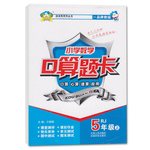
���ĸĴ�,�� ��Ӣ�������ʦҪ��ͬ��֮�佻�������ģ���������ͬ��д���������ġ����й���10������ÿ��������������������漰һ�����ʵ����ӡ�ɾ�����ġ�
��Ӣ�������ʦҪ��ͬ��֮�佻�������ģ���������ͬ��д���������ġ����й���10������ÿ��������������������漰һ�����ʵ����ӡ�ɾ�����ġ�
���ӣ���ȱ�ʴ���һ��©�ַ���(��)������������д���üӵĴʡ�
ɾ�����Ѷ���Ĵ���б��(��)������
�ģ��ڴ��Ĵ��»�һ���ߣ����ڸô�����д���ĺ�Ĵʡ�
ע�⣺1��ÿ���������ľ�����һ�ʣ�
2��ֻ������10��������(�ӵ�11����)���Ʒ֡�
Dear Mary,
I receive your E-mail just now. Don��t worry about me. I��m get on well with my research work in the lab. But to my greatly surprise you say you will give up learn English. The reason is that you have not done well in it recently but you have lost interest. I��m afraid I can��t agree you. I know it is difficulty to learn English, bu t English is widely used in the world today. It will be an important tool in our future work. Beside, it is becoming more and more important in our everyday life. If you study hardly, you will succeed. Do remember that where there is a will, there is a way. I�� m looking forward to hearing a good news from you.
t English is widely used in the world today. It will be an important tool in our future work. Beside, it is becoming more and more important in our everyday life. If you study hardly, you will succeed. Do remember that where there is a will, there is a way. I�� m looking forward to hearing a good news from you.
Yours,
Li Hua
 Сѧ��ѧ������ѿڶ���ϵ�д�
Сѧ��ѧ������ѿڶ���ϵ�д� ������Ӧ�������������ϵ�д�
������Ӧ�������������ϵ�д� �㽭֮�ǿ�ʱ�Ż���ҵϵ�д�
�㽭֮�ǿ�ʱ�Ż���ҵϵ�д�
| �꼶 | ���пγ� | �꼶 | ���пγ� |
| ��һ | ��һ��ѿγ��Ƽ��� | ��һ | ��һ��ѿγ��Ƽ��� |
| �߶� | �߶���ѿγ��Ƽ��� | ���� | ������ѿγ��Ƽ��� |
| ���� | ������ѿγ��Ƽ��� | ���� | ������ѿγ��Ƽ��� |
��Ŀ������Ӣ�� ��Դ��2015�걱���к���������һģӢ���Ծ��������棩 ���ͣ��������
______ opinions on the schedule, we finally reached on agreement.
A�� Having exchanged B�� Exchanging
C�� Exchanged D�� To exchange
�鿴�𰸺ͽ���>>
��Ŀ������Ӣ�� ��Դ��2015-2016ѧ���Ĵ�Ӫɽ�ػ�����ѧ��һ12�¼��Ӣ���Ծ��������棩 ���ͣ��������
He started to study hard and decided to________his whole life to the science.
A. ignore B. devote C. prefer D. lead
�鿴�𰸺ͽ���>>
��Ŀ������Ӣ�� ��Դ��2014-2015ѧ����������и����ڶ���ģ�⿼��Ӣ���Ծ��������棩 ���ͣ�����
�Ķ�������ϣ��ڿհ״������ʵ������ݣ�1�����ʣ��������ڵ��ʵ���ȷ��ʽ��
For centuries, everybody knows laughter is the best medicine. Besides bringing joy, the doctor also 1. ��believe�� that laughter helps release stress, which is the cause of many diseases.
The celebration of World Laughter Day is 2. ��mean�� to bring good health, joy and world peace. It is a special day that can 3. ��celebrate��annually by anyone on the first Sunday of May. All people need to do is laugh aloud and wildly. The fun event was started 4.__ Indian physician, Dr, Madan Kataria.
His quest to make the world a happier place 5. ��begin�� in 1995, with the introduction of Laughter Yoga����Ц�٤�Σ�, a fitness class 6. people practice breathing exercise and uncontrolled laughter.
Though only five students attended the first class, this fun way of exercising soon began to spread and in a short time it began to be held 7. more than 70 countries around the world.
Members get together every day or twice a week 8. exercise by simply laughing out loud, waving their hands and making funny faces each other to keep the laughing going.
In 1998, in an attempt to spread the laughter to every person, the physician declared the first Sunday of every May World Laughter Day. Not 9. ��surprise��, it became an instant hit. To make it more fun, Dr. Kararia suggested 10. ��organize�� the celebrations in public places so that other people could join in. Some even awarded prizes to participants who could perform this feat in natural and effortless way.
�鿴�𰸺ͽ���>>
��Ŀ������Ӣ�� ��Դ��2016�������������ѧ�ڽ�ѧ����ͳһ���һӢ���Ծ��������棩 ���ͣ�����
�Ķ�������ϣ��ڿհ״������ʵ����ݣ�1�����ʣ��������ڵ��ʵ���ȷ��ʽ��
In the West, most families have pets, like cats, dogs, and birds. If you live 1. a farm you also have horses, sheep, goats and something of this sort2. will become part of the extended family.
Our family had many pets in the past. My favorite pet was a little gray poodle 3. (call) Suzie. The first time I saw her, she had long matted hair, needed a bath and haircut, but had such4. beautiful face. I5. (take) her home, bathed her and clipped all her hair back to reveal the most lovable little dog.
Poodles are full of 6. (intelligent) and she was too. She learned to recognize the sounds different 7. (car) in our household made. She knew when my father��s car was coming down the road, and would run around 8. (mad) barking then rush out to the front driveway and sit there 9. (wait) for him. She also seemed to know when people 10. (be) upset and would jump up onto their laps and sit there cuddling up as if to give comfort.
�鿴�𰸺ͽ���>>
��Ŀ������Ӣ�� ��Դ��2014-2015ѧ�����ɹŶ��״���������������и�һ��ѧ����ĩӢ����������棩 ���ͣ��������
Is this the factory _____ a lot of students visited yesterday?
A. which B. the one C. who D. Whom
�鿴�𰸺ͽ���>>
��Ŀ������Ӣ�� ��Դ��2016��ɽ���ൺ����ʮ���и���12���¿�Ӣ���Ծ��������棩 ���ͣ��������
�
����������� ��ļ��ô�����Bob ���㷢��һ������ʼ������˽�һ���й����������ڴ�ѧ��ѡ�������������ڰ��������һ�ε��顣������±�����Ϣ����Bob �ظ�һ������ʼ�������������������˵��ԭ��
ѡ������ͱ��� | ԭ�� |
ʡ�ڴ�ѧ25�� | ¼ȡ���������ϰ������ |
ʡ���ѧ70�� | ���������ԣ���ѡѧУ�� |
�����ѧ5�� | �˽�����Ļ���������ѧ���� |
ע��: 1.����100���ң�
2.�����ʼ��Ŀ�ͷ�ͽ�β�Ѹ������������ܴ�����
Dear Bob,
Last week I did a survey among the students in my class on what university they want to choose. ______________________________________________________________
______________________________________________________________
______________________________________________________________
Yours,
Li Hua
�鿴�𰸺ͽ���>>
��Ŀ������Ӣ�� ��Դ��2015-2016ѧ�����������һ����ѧ�߶���ѧ����ĩӢ���Ծ��������棩 ���ͣ��Ķ�����
On a hill 600 feet above the surrounding land, we watch the lines of rain move across the scene, the moon rise over the hills, and the stars appear in the sky. The views invite a long look from a comfortable chair in front of the wooden house.
Every window in our wooden house has a view, and the forest and lakes seldom look the same as the hour before. Each look reminds us where we are.
There is space for our three boys to play outside, to shoot arrows, collect tree seeds, build earth houses and climb trees.
Our kids have learned the names of the trees, and with the names have come familiarity and appreciation. As they tell all who show even a passing interest, maple (����) makes the best fighting sticks and white pines are the best climbing trees.
The air is clean and fresh. The water from the well has a pleasant taste, and it is perhaps the healthiest water our kids will ever drink. Though they have one glass a day of juice and the rest is water, they never say anything against that.
The seasons change just outside the door. We watch the maples turn every shade of yellow and red in the fall and note the poplars�� (����) putting out the first green leaves of spring. The rainbow smelt fills the local steam as the ice gradually disappears, and the wood frogs start to sing in pools after being frozen for the winter. A family of birds rules our skies and flies over the lake.
1.What can be learned from Paragraph 2?
A. The scenes are colorful and changeable.
B. There are many windows in the wooden house.
C. The views remind us that we are in a wooden house.
D. The lakes outside the windows are quite different in color.
2.By mentioning the names of the trees, the author aims to show that ___________ .
A. the kids like playing in trees
B. the kids are very familiar with trees
C. the kids have learned much knowledge
D. the kids find trees useful learning tools
3.What does the underlined sentence in the last paragraph mean?
A. The change of seasons is easily felt.
B. The seasons make the scenes change.
C. The weather often changes in the forest.
D. The door is a good position to enjoy changing seasons.
4. What is the main purpose of the author writing the text?
A. To describe the beauty of the scene around the house.
B. To introduce her children��s happy life in the forest.
C. To show that living in the forest is healthful.
D. To share the joy of living in the nature.
�鿴�𰸺ͽ���>>
��Ŀ������Ӣ�� ��Դ��2016��ӱ���ǿ��ѧ������ѧ�����п���Ӣ���Ծ��������棩 ���ͣ�����
����
�Ķ�������ϣ��ڿհ״������ʵ������ݣ�1�����ʣ��������ڵ��ʵ���ȷ��ʽ��
British families started going on holiday to the seaside around the middle of the 19th century. The __1. (invent) of the railways made this possible. The first holiday makers 2. (be) quite rich and went for their health and education. The seaside was a place to cure people of illness. And doctors recommended bathing in the sea and drinking sea water. At that time ordinary working people had very little time off work. 3. , in 1871 the government introduced four ��Bank Holidays��, that is national holidays. This allowed people 4. (have) a day or two out now and then, 5. gave them a taste for leisure and seaside. At first, they went on a day trip, taking advantage 6. special trip tickets on the railways. By the 1880s, 7. (rise) incomes meant that many ordinary workers and their families could have holiday at the seaside. Welfare was reduced and cheap hotels 8. (build) for them. Holiday makers enjoy 9. (sit) on the beach, bathing in the sea and eating ice cream. Cheap entertainment was on offer and holiday makers went to have fun. Today 10. English seaside remains popular with more than 18 million holidays taken there each year.
�鿴�𰸺ͽ���>>
����ʡ������Υ���Ͳ�����Ϣ�ٱ�ƽ̨ | �����к���Ϣ�ٱ�ר�� | ����թƭ�ٱ�ר�� | ����ʷ���������к���Ϣ�ٱ�ר�� | ������Ȩ�ٱ�ר��
Υ���Ͳ�����Ϣ�ٱ��绰��027-86699610 �ٱ����䣺58377363@163.com